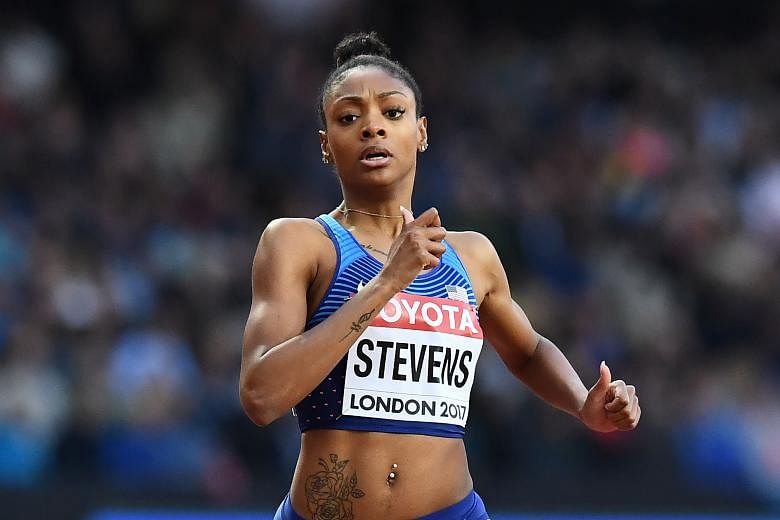July 16 (REUTERS, AFP) - American sprinter Deajah Stevens, who reached the 2016 Rio Olympics 200 metres final, was banned 18 months for missing anti-doping tests and will be ineligible for next year's Tokyo Games, the Athletics Integrity Unit (AIU) said on Thursday (July 16).
The ban handed down to Stevens, who won the US 200m title a year after finishing seventh in the Olympic final, has been backdated to begin on Feb 17, 2020, and will expire at midnight on Aug 16, 2021, eight days after the Tokyo Olympics conclude.
The three missed tests came in February, August and November last year, according to the ruling from Stevens' disciplinary hearing.
The ruling said that on the first occasion, the doping control officer could not reach the American's specified location due to restricted access at the given address in Oregon and attempts to reach her by phone were unsuccessful.
For the early-morning August 2019 test in West Hollywood, Stevens claims her phone had run out of battery overnight and she only saw the five missed calls when she woke up. Three knocks on her door over a 22-minute span went unanswered.
On the final missed test, the athlete said she was at her residence during the 60-minute window but had changed her phone number to avoid harassment by an unknown individual who had threatened her fiance's life.
According to the doping control officer, access to the building on the final visit was restricted as Stevens' name was not on the building directory, which the sprinter said she requested due to the claims of harassment.
Stevens has the right to appeal the decision.
Elite athletes are required to tell the AIU their whereabouts 90 days in advance so they can be subjected to out-of-competition doping tests.
Under World Athletics' rules, any combination of three whereabouts failures (filing failure and/or missed test) within a period of 12 months constitutes an anti-doping rule violation, for which the sanction is two years' ineligibility subject to a reduction to a minimum of one year depending on the athlete's degree of fault.

